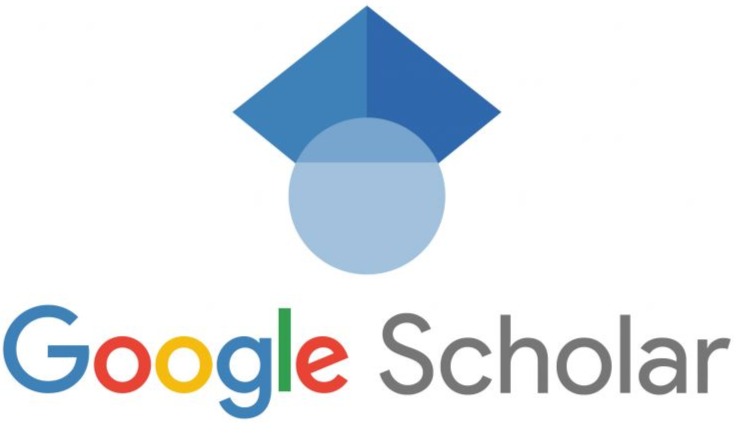A CALL TO ACTION
SHAPING AN INTERDISCIPLINARY FUTURE THROUGH ARTIFICIAL INTELLIGENCE
DOI:
https://doi.org/10.36674/mythos.v17i2.1041Keywords:
Ethics, Interdisciplinarity, Innovation, Governance, Algorithmic Bias, SustainabilityAbstract
Artificial intelligence (AI) has evolved from a subfield of computer science into a foundational technology that is transforming a wide range of domains, from molecular biology and global finance to education and health care, signalling a profound paradigm shift. This editorial advances a new imperative for interdisciplinary collaboration among academia, industry, and policymakers to overcome fragmentation and harness the power of AI through an integrated, ethical, and human-centred approach. Despite its undeniable potential in medical diagnostics, agriculture, and climate modelling, the adoption of AI faces pressing practical and ethical challenges. Key issues include: (1) algorithmic bias, which may perpetuate social inequalities; (2) data privacy and security, exacerbated by dependence on large volumes of sensitive data and the risk of Shadow AI; (3) significant environmental costs associated with training large-scale models (LLMs); and (4) a dual economic impact, promising productivity gains while requiring extensive labour-force reskilling. Furthermore, accountability for AI-related errors remains ambiguous, necessitating clear regulatory frameworks such as the European AI Act and Brazil’s Bill 2,338/2023. Addressing these challenges demands a multifaceted approach that combines technical solutions (e.g. Green AI, bias mitigation) with public policy, regulation, and education, aiming to establish a governance framework that fosters innovation and ensures the fair and equitable distribution of AI’s benefits.
References
Bahoo, S., Cucculelli, M., & Qamar, D. (2023). Artificial intelligence and corporate innovation: A review and research agenda. Technological Forecasting and Social Change, 188(March 2022), 122264. https://doi.org/10.1016/j.techfore.2022.122264
Barmer, H., Dzombak, R., Gaston, M., Palat, J., Redner, F., Smith, C., & Smith, T. (2021). Human-Centered AI Human-Centered AI. In Software Engineering Institute. https://doi.org/10.1184/R1/16560183.v1
Bianchini, S., Müller, M., & Pelletier, P. (2022). Artificial intelligence in science: An emerging general method of invention. Research Policy, 51(10), 104604. https://doi.org/10.1016/j.respol.2022.104604
Brynjolfsson, E., & McAfee, A. (2017). The Business of Artificial Intelligence. Harvard Business Review. https://hbr.org/2017/07/the-business-of-artificial-intelligence
Buolamwini, J., & Gebru, T. (2018). Gender Shades: Intersectional Accuracy Disparities in Commercial Gender Classification. Proceedings of Machine Learning Research, 81, 77–91.
Callaway, E. (2022). What’s next for the AI Protein-Folding Revolution. Nature, 604(April), 234–238.
Damioli, G., Van Roy, V., & Vertesy, D. (2021). The impact of artificial intelligence on labor productivity. Eurasian Business Review, 11(1), 1–25. https://doi.org/10.1007/s40821-020-00172-8
Faiz, A., Kaneda, S., Wang, R., Osi, R., Sharma, P., Chen, F., & Jiang, L. (2024). Llmcarbon: Modeling the End-To-End Carbon Footprint of Large Language Models. 12th International Conference on Learning Representations, ICLR 2024, 1–15.
Floridi, L., Cowls, J., Beltrametti, M., Chatila, R., Chazerand, P., Dignum, V., Luetge, C., Madelin, R., Pagallo, U., Rossi, F., Schafer, B., Valcke, P., & Vayena, E. (2018). AI4People—An Ethical Framework for a Good AI Society: Opportunities, Risks, Principles, and Recommendations. Minds and Machines, 28(4), 689–707. https://doi.org/10.1007/s11023-018-9482-5
Gawande, M. S., Zade, N., Kumar, P., Gundewar, S., Weerarathna, I. N., & Verma, P. (2025). The role of artificial intelligence in pandemic responses: from epidemiological modeling to vaccine development. Molecular Biomedicine, 6(1), 1–25. https://doi.org/10.1186/s43556-024-00238-3
Hang, H., & Chen, Z. (2022). How to realize the full potentials of artificial intelligence (AI) in digital economy? A literature review. Journal of Digital Economy, 1(3), 180–191. https://doi.org/10.1016/j.jdec.2022.11.003
Hurlin, C., Pérignon, C., & Saurin, S. (2024). The Fairness of Credit Scoring Models. Management Science, September 2025. https://doi.org/10.1287/mnsc.2022.03888
Kafila, Swetha, S., Mittal, S., Vijaya Lakshmi, V., Lourens, M., & Soni, M. (2024). Combining AI with Machine Learning to Improve Decision-Making in New Business Technologies. TQCEBT 2024 - 2nd IEEE International Conference on Trends in Quantum Computing and Emerging Business Technologies 2024, 22–26. https://doi.org/10.1109/TQCEBT59414.2024.10545201
Korobenko, D., Nikiforova, A., & Sharma, R. (2024). Towards a Privacy and Security-Aware Framework for Ethical AI: Guiding the Development and Assessment of AI Systems. ACM International Conference Proceeding Series, 740–753. https://doi.org/10.1145/3657054.3657141
Mehrabi, N., Morstatter, F., Saxena, N., Lerman, K., & Galstyan, A. (2021). A Survey on Bias and Fairness in Machine Learning. ACM Comput. Surv., 54(6). https://doi.org/10.1145/3457607
Ng, D. T. K., Leung, J. K. L., Su, J., Ng, R. C. W., & Chu, S. K. W. (2023). Teachers’ AI digital competencies and twenty-first century skills in the post-pandemic world. Educational Technology Research and Development, 71(1), 137–161. https://doi.org/10.1007/s11423-023-10203-6
Pflanzer, M., Traylor, Z., Lyons, J. B., Dubljevi?, V., & Nam, C. S. (2023). Ethics in human–AI teaming: principles and perspectives. AI and Ethics, 3(3), 917–935. https://doi.org/10.1007/s43681-022-00214-z
Pigola, A., Scafuto, I. C., Costa, P. R. da, & Nassif, V. M. J. (2023). Artificial Intelligence in Academic Research. International Journal of Innovation, 11(3), 01–09. https://doi.org/10.5585/2023.24508
Rahmani, A. M., Azhir, E., Ali, S., Mohammadi, M., Ahmed, O. H., Ghafour, M. Y., Ahmed, S. H., & Hosseinzadeh, M. (2021). Artificial intelligence approaches and mechanisms for big data analytics: a systematic study. PeerJ Computer Science, 7, 1–28. https://doi.org/10.7717/peerj-cs.488
Rahwan, I., Cebrian, M., Obradovich, N., Bongard, J., Bonnefon, J. F., Breazeal, C., Crandall, J. W., Christakis, N. A., Couzin, I. D., Jackson, M. O., Jennings, N. R., Kamar, E., Kloumann, I. M., Larochelle, H., Lazer, D., McElreath, R., Mislove, A., Parkes, D. C., Pentland, A. ‘Sandy,’ …
Wellman, M. (2019). Machine behaviour. Nature, 568(7753), 477–486. https://doi.org/10.1038/s41586-019-1138-y
Reichstein, M., Camps-Valls, G., Stevens, B., Jung, M., Denzler, J., Carvalhais, N., & Prabhat. (2019). Deep learning and process understanding for data-driven Earth system science. Nature, 566(7743), 195–204. https://doi.org/10.1038/s41586-019-0912-1
Ren, S., Tomlinson, B., Black, R. W., & Torrance, A. W. (2024). Reconciling the contrasting narratives on the environmental impact of large language models. Scientific Reports, 14(1), 1–8. https://doi.org/10.1038/s41598-024-76682-6
Rillig, M. C., Ågerstrand, M., Bi, M., Gould, K. A., & Sauerland, U. (2023). Risks and Benefits of Large Language Models for the Environment. Environmental Science and Technology, 57(9), 3464–3466. https://doi.org/10.1021/acs.est.3c01106
Schwartz, R., Dodge, J., Smith, N. A., & Etzioni, O. (2020). Green AI. Communications of the ACM, 63(12), 54–63. https://doi.org/10.1145/3381831
Sharma, R. (2021). Artificial intelligence in agriculture: A review. Proceedings - 5th International Conference on Intelligent Computing and Control Systems, ICICCS 2021, Iciccs, 937–942. https://doi.org/10.1109/ICICCS51141.2021.9432187
Silic, M., Silic, D., & Kind-Trüller, K. (2025). From Shadow It to Shadow AI–Threats, Risks and Opportunities for Organizations. Strategic Change, 1–16. https://doi.org/10.1002/jsc.2682
Topol, E. J. (2019). High-performance medicine: the convergence of human and artificial intelligence. Nature Medicine, 25(1), 44–56. https://doi.org/10.1038/s41591-018-0300-7
Trabelsi, M. A. (2024). The impact of artificial intelligence on economic development. Journal of Electronic Business & Digital Economics, 3(2), 142–155. https://doi.org/10.1108/jebde-10-2023-0022
Villarreal-Espinosa, J. B., Berreta, R. S., Allende, F., Garcia, J. R., Ayala, S., Familiari, F., & Chahla, J. (2024). Accuracy assessment of ChatGPT responses to frequently asked questions regarding anterior cruciate ligament surgery. Knee, 51(March 2023), 84–92. https://doi.org/10.1016/j.knee.2024.08.014
Wang, H., Fu, T., Du, Y., Gao, W., Huang, K., Liu, Z., Chandak, P., Liu, S., Van Katwyk, P., Deac, A., Anandkumar, A., Bergen, K., Gomes, C. P., Ho, S., Kohli, P., Lasenby, J., Leskovec, J., Liu, T. Y., Manrai, A., … Zitnik, M. (2023). Scientific discovery in the age of artificial intelligence. Nature, 620(7972), 47–60. https://doi.org/10.1038/s41586-023-06221-2
WEF. (2025). Future of Jobs Report 2025. In Insight Report. https://doi.org/10.1007/978-1-137-40325-4
Whittlestone, J., Nyrup, R., Alexandrova, A., Dihal, K., & Cave, S. (2019). Ethical and societal implications of algorithms, data, and artificial intelligence: a roadmap for research. In London: Nuffield …. https://www.nuffieldfoundation.org/sites/default/files/files/Ethical-and-Societal-Implications-of-Data-and-AI-report-Nuffield-Foundat.pdf
Downloads
Published
How to Cite
Issue
Section
License
Copyright (c) 2025 Rodrigo Franklin Frogeri; Fabrício Pelloso Piurcosky, Pedro dos Santos Portugal Júnior

This work is licensed under a Creative Commons Attribution 4.0 International License.
Since January of 2024, the authors retain the copyright relating to their article and grant the journal Mythos, from FEPESMIG, the right of first publication, with the work simultaneously licensed under the Creative Commons Attribution 4.0 International license (CC BY 4.0), as stated in the article’s PDF document. This license provides that the article published can be shared (allows you to copy and redistribute the material in any medium or format) and adapted (allows you to remix, transform, and create from the material for any purpose, even commercial) by anyone.





























